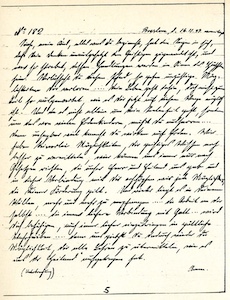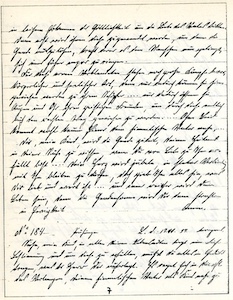Spiritual bondage is when a person is forced into a belief by decrees and commandments and is forbidden any examination of it under threat of temporal or eternal punishment. As soon as a person can freely decide for himself whether he wants to accept the spiritual knowledge offered to him or not, he is not spiritually enslaved and thus also fully responsible for his thoughts and actions. And that is why Jesus did not say to His disciples: "Command men what they shall believe...." but He sent them into the world with the words: "Go and teach all nations...." No other commandment is spoken of than only the commandment of love of God and love of neighbour.... This commandment also includes all the ten commandments which God gave to men through Moses, because the man who fulfils the commandment of love of neighbour does not in any way transgress against those divine commandments. And sin is everything that violates the divine commandment of love. The consequences of sins are their punishments, thus the human being punishes himself, but God does not impose a punishment on him, instead, according to divine justice the effect of unkindness, of sin, is always painful for the human being and he has to accept the consequences of sin on earth or in the beyond. But if human commandments are issued whose non-observance is reckoned to the human being as sin, which results in God's punishment, this is spiritual bondage, it is a curtailing of free will, for the human being will do what he is supposed to under pressure and have little success in his upward development. For only what the human being does of his own free will and for God's sake is valuable before God. He must feel inwardly driven to do it and comply with the inner voice, then it is a work of freedom which is valued by God. In the same way, faith must be acquired by the human being himself by examining and thinking through what he is asked to believe. It must be a convinced faith, acquired of its own free will, but not a faith which must be demanded by force, which must be accepted unconditionally if it is transferred to a person in a scholastic way. Then the human being is in spiritual bondage, and such faith is dead, it is worthless before God. Countless people, however, are kept in spiritual bondage, they are taught, often also by ignorant people, they are put into a certain state of compulsion in that sin with its punishment accompanies every teaching of faith, i.e. the non-acceptance of faith is portrayed as sin which entails its punishment. Thus the human being could shift the responsibility away from himself if he did not also have doubts of faith which partly come from within and partly from without and which stimulate him to think about it as soon as he is serious about standing in the truth. God often shakes the thinking of people who live in spiritual bondage; they are prompted to reflect by external influences, by their own fate, so that they use and test the gift of intellect despite the counter-pressure of those who believe they are entitled to teach.... And he who is serious about the truth will free himself from spiritual bondage, he will recognize the unreasonableness of the desire to unconditionally accept something which people have imparted to him. For what is divine of their teachings the examiner also recognizes as divine, yet very soon he will learn to distinguish God's work from human work, very soon he will recognize the flimsiness of teachings which are not of divine origin, and very soon he will learn to regard the human being's free will as the main factor which is decisive for his soul's ascent development. And then he will free himself from the shackles which are man's work, then his faith will also become more convinced and far more valuable than the formal faith which many people call their own and defend out of tradition but which does not hold up when serious trials come upon people. For then a structure will collapse which has stood its ground for a long time but which cannot remain in existence because it is the work of human beings and disregarded the freedom of the will by issuing commandments which do not correspond to God's will. For if the human being is to answer for his actions one day, he must be able to act in full freedom of will but never be forced to make a decision by the threat of punishment for sin.... because otherwise he could not become eternally perfect.
Amen












